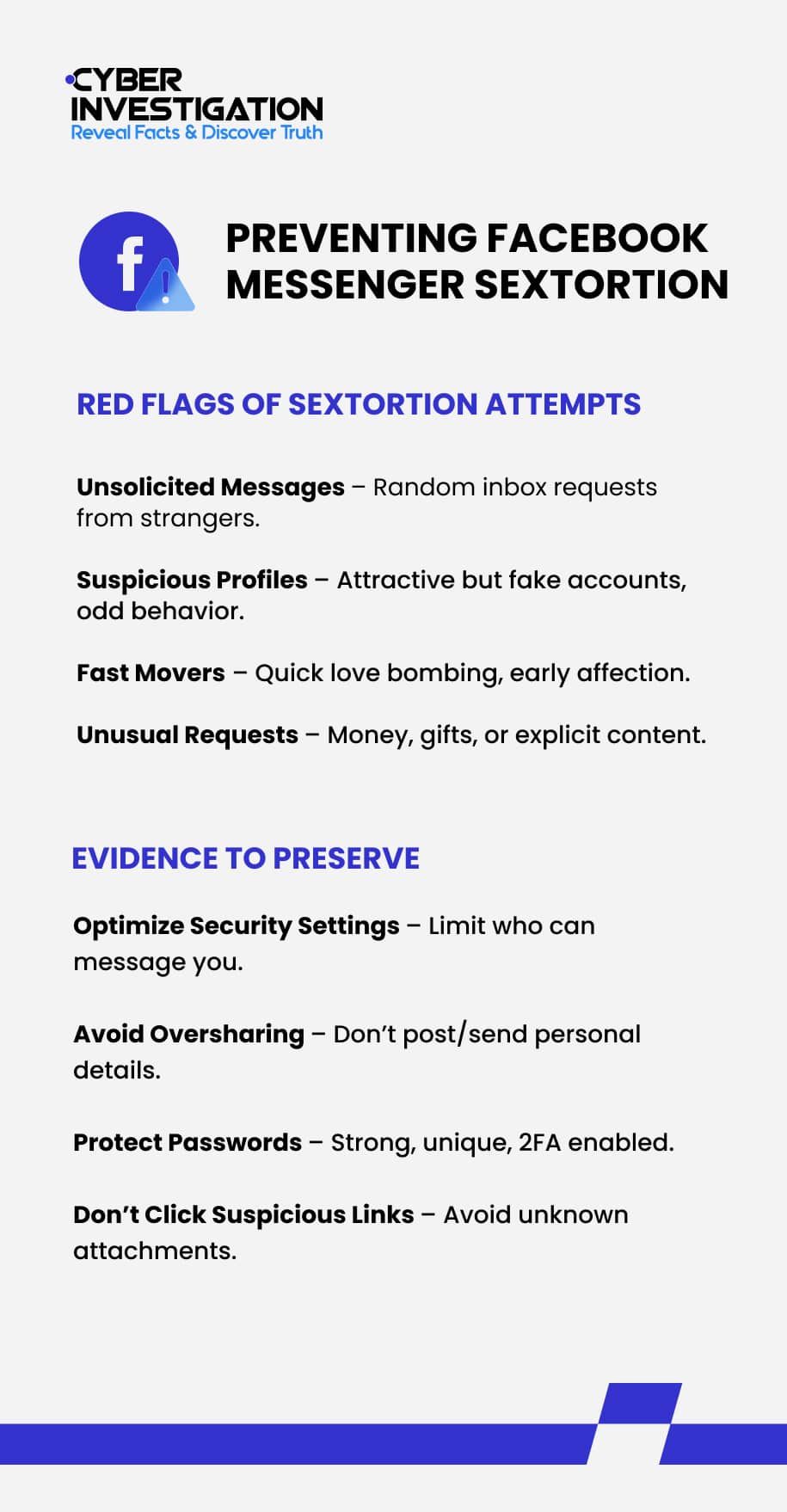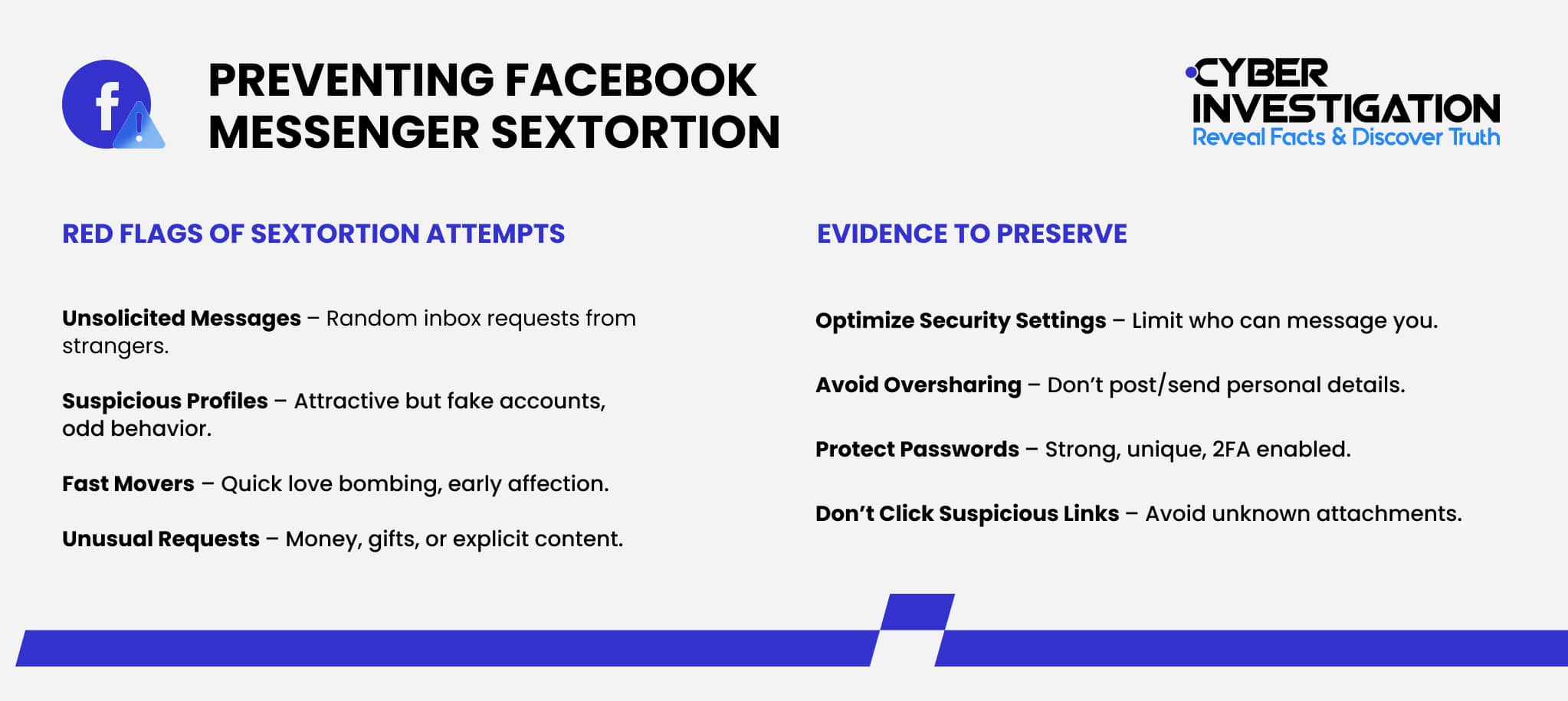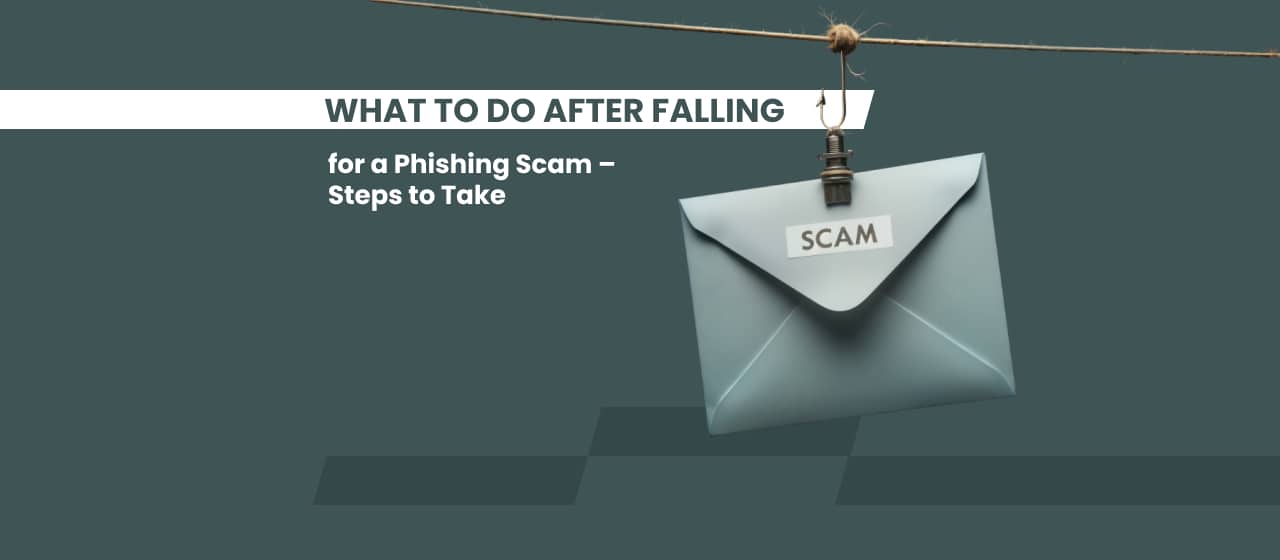Recent studies have found that messaging platforms are the second-most common starting point for sextortion. Facebook is the largest social network, and its Messenger chat platform trails only WhatsApp and WeChat in monthly active users. With these figures in mind, it’s important to understand how to prevent Facebook Messenger sextortion. Keep reading to learn how you can keep yourself safe on the platform.
Identifying the Issue: Prevent Facebook Messenger Sextortion Before It Starts
The first and largest battle in your effort to prevent Facebook Messenger sextortion is recognizing these schemes before they develop. This is a task that is easier said than done, but one that is very possible nonetheless. By learning the commonalities of sextortion and safe online practices, you can position yourself to safely use platform.
Common Red Flags of Facebook Messenger Sextortion
Sextortion is often conducted by organized cybercrime groups based overseas. They follow scripts similar to cold calling, leading to common tactics popping up across different scams. These parallels can help you recognize and prevent Facebook Messenger sextortion.
- Unsolicited Messages. Any message in your inbox that you didn’t initiate or expect should be assessed with caution. Think about it — how often do you send messages to random people online?
- Suspicious Profiles. Although it’s an exciting prospect, it’s unlikely that a wealthy, attractive individual is looking for love on Facebook chat Messenger. You should also be wary of unusual account behavior, such as weird posting habits or unnatural friend lists.
- Fast Movers. It’s not uncommon to connect with someone online and hit it off early on in the conversation. However, what is unusual is passionate declarations of love in the beginning stages. Sextortionists often “love bomb” their targets.
- Unusual Requests. It should be alarming if anyone online begins making requests for money, gifts, or personal information. In the case of sextortion, the request is for explicit content under the guise of an attractive suitor.


Practices That Can Help Prevent Facebook Messenger Sextortion
Knowing that sextortionists inhabit Facebook Messenger may deter you from using the platform. However, it is possible to avoid these criminals without having to delete the app. In addition to knowing what to look for, there are measures you can take to prevent Facebook Messenger sextortion.
- Optimize Your Security Settings. Set your account to private and limit who can reach you through Facebook Messenger. You can do this under “Privacy and safety” in your account settings.
- Avoid Oversharing. If you choose to send intimate content, do so with extreme caution and confirm the recipient’s identity. But avoiding oversharing also means not posting or sending personal information online.
- Protect Your Passwords. Use strong, unique passwords for each online account and keep them private. Update your passwords regularly and consider the benefits of a password manager. You should also enable two-factor authentication (2FA) whenever available.
- Don’t Click Suspicious Attachments. It’s never a good idea to click links you don’t know the destination to, especially from an unfamiliar sender. Sextortionists and other cybercriminals often embed malware in messages as a gateway to their target’s device.
What is Meta Doing to Prevent Facebook chat Messenger Sextortion?
Over recent years, Meta has implemented many new features to help users prevent sextortion on Facebook and Facebook Messenger. This effort has been made in coordination with multiple internet safety organizations.
Take It Down Tool
Meta collaborated with the National Center for Missing and Exploited Children (NCMEC) to create and expand the “Take It Down” Tool. The tool helps minor victims of sextortion remove their intimate content and prevent it from being reshared. This is done by assigning a unique hash to the image that is detected if the image is reshared.
The tool was initially released in 2023 and was available in English and Spanish. However, Meta and NCMEC extended the reach of the tool in 2024 by making it available in 25 languages. In their press release announcing the expansion, Meta said this will make the tool accessible to millions more teens.
Collaborating with Thorn
Meta teamed up with Thorn, a nonprofit working to improve cybersecurity for minors, to improve their sextortion guidance page. The resource aims to provide victims with guidance on how to proceed if they are targeted by a sextortionist. It also includes ways you can help a loved one who is experiencing the crime. The page can be found within the Sextortion Hub of Meta’s Safety Center.
Messenger Restrictions for Minors
Messenger has several features in place to help prevent sextortion that are automatically turned on for users under 18. One of these is nudity blur on photos. This feature blurs any nude content on the receiving end and issues a warning to the sender to be cautious when sharing such content.
Furthermore, accounts flagged for potential scammer activity will have their messages automatically delivered to the “hidden requests” folder. Warning messages will be sent to users who are already messaging potential scammers. Additionally, adults will only be able to message teen accounts they’re connected with. The message option won’t appear for potential sextortion accounts, even if they are connected already.
“Staying Safe from Online Harm” Curriculum
On Safer Internet Day 2025, Meta partnered with Childhelp to create an educational cyber safety module for middle schoolers. The curriculum is available for free online and discusses how to recognize and prevent sextortion and other forms of child exploitation.
Other contributors include the NCMEC, Thorn, the Department of Homeland Security, Purdue University and the Crimes against Children Research Center. This service provides guardians and educators with the tools to educate the children in their care — from lesson plans to engaging videos and activities.
Creating a Safe Future: Prevention Through Education
After reading this article, you’ve already taken a huge step in your effort to prevent Facebook Messenger sextortion. However, the job is not finished. Cybercriminals are constantly evolving, and you need to keep up with them.
Continual research and education are required to remain on the forefront of the best practices in cybersecurity. Much like a history textbook becomes outdated, cybersecurity information is constantly being improved and expanded upon.
Luckily, there are experts who are working just as hard to provide up to date information and create a safer digital realm for everyone. At Cyber Investigation Inc., we are constantly adding to our database of educational material. Our blog page is a great place to find the latest expert advice.
And if you are ever faced with sextortion on Facebook Messenger, we can help you gather the evidence you need to fight back. You can call our Facebook Sextortion Helpline any time of day to speak with our specialists and regain control.







